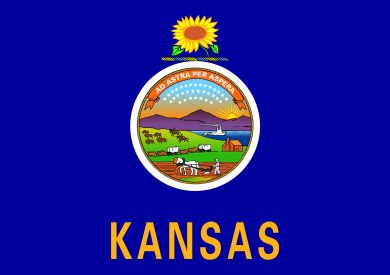
 Popular Cities For Lending in Kansas
Popular Cities For Lending in Kansas
Leavenworth
Leawood
Lenexa
Manhattan
Olathe
Overland Park
Salina
Shawnee
Topeka
Wichita
In the Kansas real estate market, grabbing properties before your competition is essential for making the best deals. Although real estate investors sometimes go the traditional route and seek bank loans, the process is anything but speedy.
When time is of the essence, waiting for the lengthy process of getting approval is not an option for most investors. Kansas hard money lenders specialize in providing hard money loans which provide quick funds to investors. These loans are for a non owner occupied property or in some cases for business purpose loans.
Kansas Hard Money Lender FAQ’S
Below are some of the most frequently asked questions we get regarding hard money loans and lenders in Kansas.
What Do Kansas Hard Money Lenders Specialize in?
Kansas hard money lenders specialize in providing short-term, creative financing for real estate investors. If you seek a conventional lender to purchase an investment property, your loan request will be based on the property’s value and your assets. Your credit score, job, and finances will be scrutinized intensely. Hard money lenders base their final loan decisions on the after-repair value. The ARV represents the potential value of a property after all repairs have been accomplished.
What are the Benefits of Kansas Hard Money Loans?
Kansas hard money loans offer advantages that traditional banks cannot. Lenders like Acamnet Financial offer a higher level of flexibility than banks. When qualifying for this type of loan, lenders do not delve too deeply into the finances of real estate investors. In most cases, simply present the property and your plans, which saves you the hassle of gathering countless financial documents.
Do Kansas Hard Money Lenders Look at my Credit Score?
One of the greatest benefits of working with Kansas hard money lenders is the lack of credit score requirements. One of the first things a bank does is check your credit score. You can get approved for a hard money loan in Kansas even if you have bad credit or poor credit, bankruptcies, and foreclosures in the past. Kansas Hard money lenders primarily care about the property you are purchasing.
What is the Interest Rate & Points for Hard Money Loans in Kansas?
Interest rates for hard money loans in Kansas are typically higher than traditional bank loans (conventional loans) because of the greater risk lenders must take on when approving loans. When searching for a hard money lender near me in Kansas, you will find average interest rate is between 8%-15%. You should also be aware that lenders sometimes charge points that are meant to offset their administrative costs. Each point represents 1% of the total loan amount. The average points lenders charge is between 1 to 3. Some lenders may charge up to 10 points. These points are due upfront or at closing, depending on the lender.
What Should I Look for in a Kansas Hard Money Lender?
There are many benefits to working with a Kansas hard money lender. You just need to make sure you are working with the right lender. You can rely on Acamnet Financial Group when you need us most. We offer reliability, consistency, experience, and support. As a real estate investor, you know the importance of grabbing the best property deals when they become available.
How can Hard Money Lenders in Kansas Help Me?
Whether you are new to real estate and real estate projects or an old pro, you know having the capital to purchase real estate is essential. Without funds, you will miss out on real estate transactions. When you partner with hard money lenders in Kansas, you will quickly get the money you need without jumping through the hoops of traditional bank lenders.
How do I get a Hard Money Loan in Kansas?
When you want a hard money loan in Kansas, begin by preparing the property information. Location, size, purchase price, after repair value, repair costs, etc. In most cases, the financing will be based on these numbers. Then, apply for a hard money loan in Kansas using this information and supply some financial information. Then, an appraisal will be ordered to assess the loan-to-value ratio, which will influence the loan amount.
How do I Refinance a Kansas Hard Money Loan?
Refinance a Kansas hard money loan will involve moving from a high interest, short term loan to a longer term, usually lower interest rate loan. Typically a conventional type of loan. When refinancing a Kansas hard money loan you will find it will have a more stringent set of guidelines. You will need to have sufficient credit and income qualifications. As the lending landscaping and regulations constantly change, you want to consult a knowledgeable conventional loan expert.

Current Real Estate Trends In Kansas (2025)
The real estate trends in Kansas are a mix of good and bad. Kansas City has had struggles with decreased sales, but it is still a sellers market with low inventories.
Home sales in Kansas in June 2023 were down 9.6% from the same time last year. Average sale price, however, saw a 3.8% increase.
Missouri housing market listings have been growing steadily, but sales in June 2023 fell 5.0%. Median residential price still increased 3.7% year over year.
In Kansas City, Missouri, sales took a dip, but the average sales price had a jump. Kansas City housing market is expected to continue growing and appreciating into the future.
Housing Market Overview
The Kansas housing market is currently experiencing a downturn in the amount of homes sold. Compared to last year, there has been a decrease of 23.0%. This data suggests that fewer people are buying homes in Kansas.
However, despite the decrease in home sales, the median sale price has gone up by 3.3%. This increase implies that there is still strong demand for houses in Kansas. As a result, property values have risen.
Overall, the housing market in Kansas is showing a decrease in activity, with fewer homes being sold. However, the increase in median sale price indicates that there is still a demand for houses, leading to a rise in property values.
Real Estate Market Updates
The Kansas housing market has become more advantageous for buyers recently, with mortgage rates and the number of listings both showing significant increases in April 2023. Mortgage rates have gone up 33.13%, making it harder for potential buyers to purchase a home. On the other hand, the amount of listings has increased 124.98%, giving buyers more choices and the potential to negotiate better prices.
The current market trend is not great news for sellers, but it provides a great opportunity for buyers. The high mortgage rates mean that buyers will need to be extra prudent when securing financing, but the abundance of listings gives them the chance to find the perfect home at the right price.
Whether you are a buyer or a seller in the Kansas housing market, it’s important to stay informed of the latest market developments. The current market data shows a clear trend that favors buyers, so it’s important to take advantage of the situation while you can.
Housing Market Predictions
Analysts in the housing market anticipate a slowdown, but not a crash, due to the Federal Reserve opting to not raise interest rates. This has assisted in stabilizing mortgage rates, as well as encouraging more buyers to join the market.
To summarize the current Kansas housing market predictions, here’s what to note:
- The market is expected to take a dip in 2023.
- Mortgage rates have declined from their peak, which has made buying more accessible.
- While buyers remain cautious, applications are increasing.
- Kansas has benefits like low inventory and low foreclosure rate.
Sources
https://www.noradarealestate.com/blog/kansas-city-real-estate/
https://www.houzeo.com/blog/kansas-real-estate-market/
https://realwealth.com/markets/kansas-city-missouri/

All About Kansas
This article provides an overview of Kansas in the central United States.
The name ‘Kansas’ is derived from the Algonquian term ‘Akansa,’ which references the Quapaw people.
Kansas has a diverse topography, featuring river valleys in the east and prairies in the west.
The state has a continental climate characterized by hot summers and cold winters, and it is renowned for its tornadoes as part of Tornado Alley.
Kansas has a robust agricultural sector, focusing on producing crops such as wheat, corn, sorghum, and soybeans.
Additionally, the state is involved in aerospace manufacturing, oil and gas production, healthcare, and education.
With a population of approximately 2.9 million, Kansas has a rich cultural heritage influenced by Native American, European, and African American traditions.
The state offers a range of tourist attractions, including national parks, historic sites, and outdoor activities.
Etymology and Native Tribes
The name ‘Kansas’ is derived from the Algonquian term ‘Akansa,’ which refers to the Quapaw people, and the stem ‘-kansa’ is named after the Kaw people, also known as the Kansa, a federally recognized Native American tribe.
The Quapaw people were the original inhabitants of the region, and the name ‘Kansas’ was used by the French explorers to refer to the land inhabited by the Kaw people.
The Kaw people were part of the Siouan-speaking tribes and had a significant presence in Kansas before European colonization. They lived along the Kansas River and were known for their agricultural practices and trading networks.
The name ‘Kansas’ reflects the historical and cultural significance of the region’s Quapaw and Kaw people.
Early history and colonization in Kansas saw the arrival of European explorers and settlers, which shaped the state’s future.
Early History and Colonization
Before European settlers arrived, early colonization of present-day Kansas was marked by the presence of the Caddoan Wichita and Siouan Kaw people. The Caddoan Wichita people were one of the dominant Native American groups in the region, known for their rural lifestyle and trade networks. They lived in permanent villages along the rivers and practiced farming, hunting, and gathering.
The Siouan Kaw people, also known as the Kansa, were another important tribe in the area. They were semi-nomadic and relied on hunting bison for their livelihood.
European colonization of Kansas began with the arrival of Spanish explorers in the 16th century, followed by French and later American traders and settlers. These interactions between Native American tribes and European colonizers laid the foundation for the subsequent history and development of the region.
Geography and Borders
Geographically, Kansas is located in the central part of the United States, bordered by Nebraska to the north, Missouri to the east, Oklahoma to the south, and Colorado to the west. It spans approximately 82,278 square miles (213,100 square kilometers).
The state is divided into 105 counties and has a diverse landscape. The eastern part of Kansas is characterized by river valleys, including the Kansas River, while the western part is predominantly flat prairie. Notable geographical features include Mount Sunflower, the highest point in Kansas, reaching 4,039 feet (1,231 meters) above sea level, and Kanopolis State Park, a natural area known for its scenic beauty and recreational activities.
The unique geography of Kansas has played a significant role in shaping its economy and industries, which will be discussed in the subsequent section.
Economy and Industries
One of the key factors contributing to Kansas’ prosperity is its diverse range of industries and a strong economy.
Kansas is known as one of the most productive agricultural states, producing high yields of wheat, corn, sorghum, and soybeans. The state’s agricultural sector plays a vital role in the economy, providing employment opportunities and contributing to the export market.
Additionally, Kansas has a significant aerospace manufacturing industry, with major companies like Boeing and Spirit AeroSystems operating in the state.
Other important sectors of the economy include oil and gas production, healthcare, and education.
Kansas also offers a relatively low cost of living compared to the national average, making it an attractive place for businesses and individuals.
This strong economy provides a solid foundation for Kansas’ cultural heritage and vibrant tourism industry.
Culture and Tourism
The rich cultural heritage of Kansas is showcased through its diverse range of traditions, arts, and music scene, making it a vibrant and captivating destination for tourists.
Kansas has been influenced by Native American, European, and African American traditions, creating a unique cultural tapestry.
The state is known for its cowboy and Wild West history, with towns like Dodge City and Abilene playing essential roles in shaping the American frontier.
Kansas also has a strong tradition of agriculture, with farming and ranching integral to the state’s identity.
Kansas’s arts and music scene is diverse, with notable venues and events throughout the state, offering visitors a chance to experience live performances, visual arts, and local craftsmanship.
Additionally, sports, particularly college basketball, are popular in Kansas, with passionate fans supporting local teams.
Overall, Kansas offers a rich cultural experience for tourists, blending history, arts, and traditions into a captivating journey.


 Popular Cities For Lending in Kansas
Popular Cities For Lending in Kansas